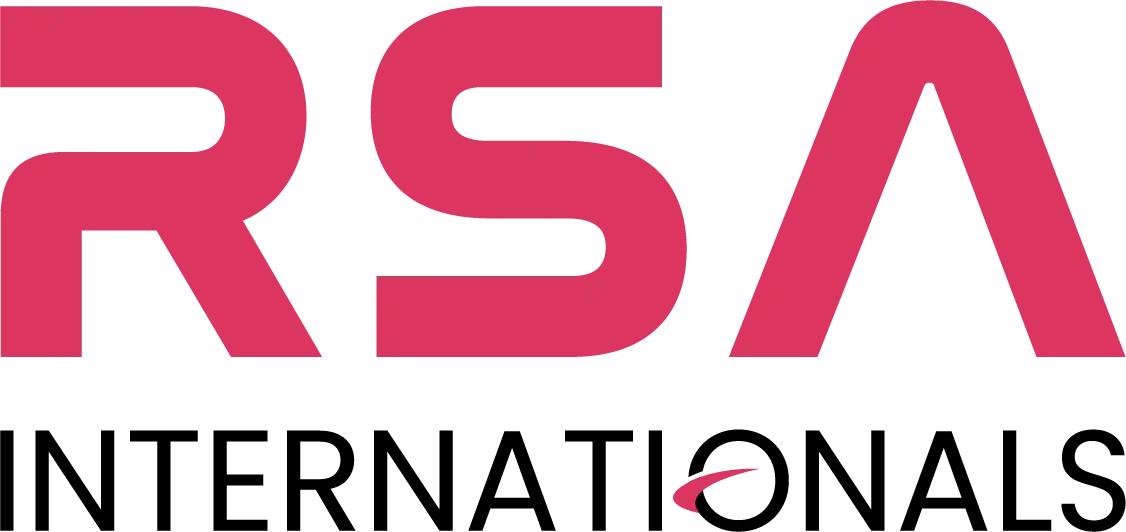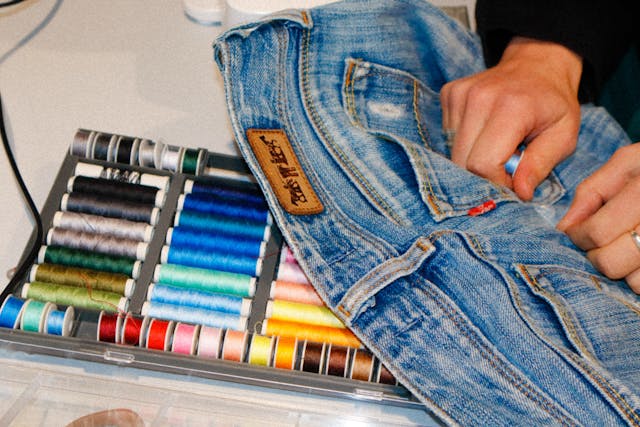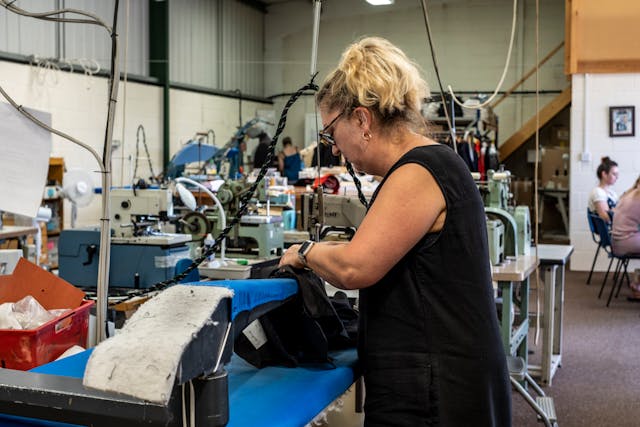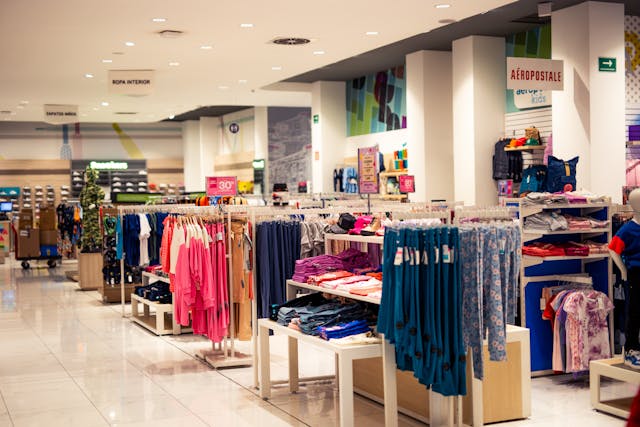Write Us: info@rsainternationals.com
How to Choose the Right Apparel Manufacturer: A Step-by-Step Guide
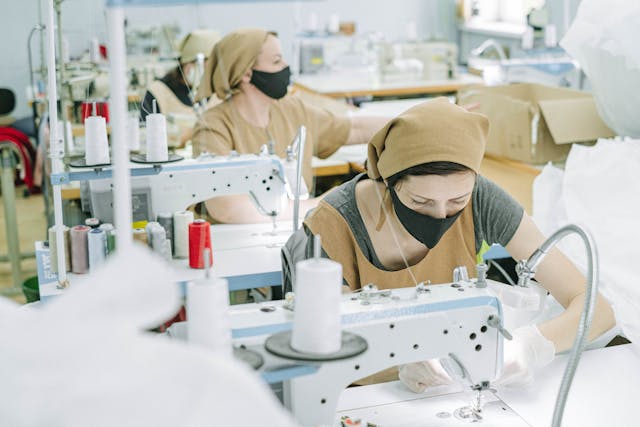
Step 1: Define Your Needs and Expectations
Before you begin your search for a manufacturer, it’s essential to have a clear understanding of what you need. This will serve as your roadmap throughout the process.
- Product Type: Are you manufacturing basic clothing, high-end fashion, or specialized items like activewear or outerwear? Define the type of apparel you want to produce and any specific requirements such as fabric types, designs, or finishes.
- Order Size: Do you need to produce small batches or large volumes? Some manufacturers specialize in mass production, while others focus on smaller, more personalized orders.
- Production Timeline: How quickly do you need the products delivered? If your business has tight deadlines or operates on a seasonal basis, it’s crucial to choose a manufacturer with the capacity to meet those demands.
- Budget: Determine your budget and be realistic about what you can afford. While it’s tempting to go for the cheapest option, remember that quality and reliability are paramount.
Step 2: Research Potential Manufacturers
Once you know your needs, begin researching potential manufacturers. Take the time to review their portfolios, website, and industry reputation. Look for manufacturers that align with your brand’s values and quality standards.
- Experience: How long has the manufacturer been in business? Choose a manufacturer with extensive experience in the apparel industry, as they will have a proven track record of delivering quality products on time.
- Specialization: Does the manufacturer specialize in the type of apparel you are producing? If you’re creating complex garments, such as jackets or performance wear, look for manufacturers who have expertise in those areas.
- Factory Location: Where is the manufacturer located? While offshore manufacturers can offer cost benefits, it’s also important to consider logistics, lead times, and potential communication challenges. Many brands opt for nearshoring or local manufacturing to reduce lead times and minimize shipping costs.
- Reviews and References: Check online reviews and ask the manufacturer for references from previous clients. Positive feedback from other businesses in the apparel industry can offer valuable insights into their reliability and quality.
Step 3: Verify Their Capabilities
Once you’ve shortlisted a few potential manufacturers, it’s time to verify their capabilities.
- Production Capacity: Can they handle your order volume? Ensure the manufacturer has the capacity to meet your needs, whether it’s for large-scale production or limited-edition runs.
- Technology and Equipment: Does the manufacturer use modern equipment and technology? Advanced machinery and software can lead to higher precision, faster production times, and improved quality control.
- Quality Assurance: What quality control measures do they have in place? A reputable manufacturer will have a dedicated quality control team that performs checks throughout the production process to ensure the final product meets your standards.
- Compliance with Regulations: Ensure the manufacturer complies with international standards and regulations. This includes health and safety requirements, environmental regulations, and labor laws. Ethical sourcing is a crucial aspect to consider here.
Step 4: Evaluate Communication and Customer Service
Communication is key when working with any manufacturer. The right manufacturer should be easy to communicate with and responsive to your inquiries.
- Response Time: How quickly do they respond to your initial inquiries? A reliable manufacturer will typically respond within 24-48 hours to emails and calls.
- Transparency: Are they open and transparent about their processes, costs, and any potential issues? The manufacturer should provide you with clear, honest information from the beginning.
- Customer Support: Do they offer good customer support throughout the production process? From handling unexpected issues to answering technical questions, responsive customer support is essential for building a smooth partnership.
Step 5: Request Samples and Conduct Factory Visits
Before making a final decision, request product samples to evaluate the manufacturer’s work firsthand. This allows you to check the quality, craftsmanship, and materials used in their production.
- Sample Review: Examine the sample closely for stitching, fabric quality, design details, and overall finishing. If possible, conduct a wear test to assess durability and comfort.
- Factory Visit: If possible, visit the manufacturer’s factory in person. This will give you insight into their working conditions, production processes, and overall operations. It’s also a great opportunity to meet the team and address any concerns you may have.
If visiting the factory isn’t feasible, you can request video calls or virtual tours to get a closer look at their operations. Third-party agencies like RSA Internationals can also assist with factory audits and inspections to ensure the manufacturer meets your standards.
Step 6: Discuss Terms and Agreements
Once you’ve evaluated the manufacturer and are satisfied with their capabilities, it’s time to discuss terms and agreements.
- Pricing: Make sure the pricing structure is clear and within your budget. Ask for a detailed breakdown of costs, including production costs, shipping fees, and any hidden charges.
- Payment Terms: Agree on payment terms, such as upfront deposits, milestones, and final payments. Payment terms should be mutually beneficial and clearly outlined in the contract.
- Lead Times and Delivery: Establish realistic lead times and delivery schedules. Make sure both parties agree on the timeline for sample approvals, production, and shipping.
- Minimum Order Quantities (MOQs): Discuss the minimum order quantities, especially if you have limited order sizes or specialized needs.
Step 7: Sign a Contract and Start Production
After finalizing all terms, it’s time to sign the contract. The contract should cover all aspects of the manufacturing agreement, including production timelines, quality standards, payment schedules, and any contingencies for delays or quality issues.
Once the contract is signed, start the production process! Stay in close communication with the manufacturer throughout the process to address any issues that may arise.
Conclusion
Choosing the right apparel manufacturer is a critical step in ensuring the success of your brand. By following this step-by-step guide, you can select a manufacturer that not only meets your quality and production needs but also shares your values when it comes to ethics and sustainability.
RSA Internationals can help streamline this process by offering expert guidance in supplier vetting, quality inspections, and factory audits, ensuring that you partner with manufacturers who align with your standards and expectations. With the right manufacturing partner, your brand can deliver top-quality products that delight your customers, all while maintaining smooth operations and timely deliveries.
